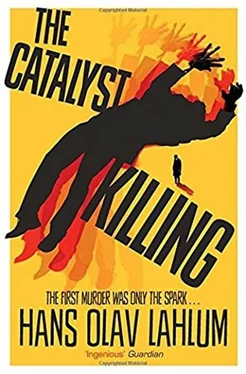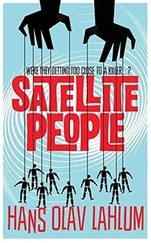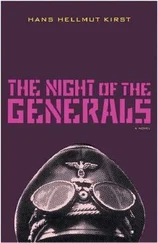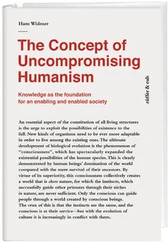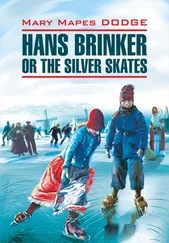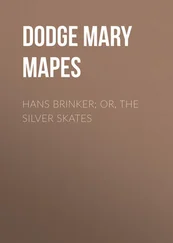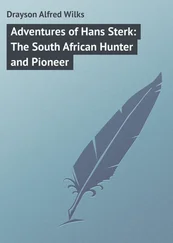I jotted the questions down without understanding their significance. I then asked Patricia if we could postpone our planned supper until seven, as I still had to take down several important statements.
‘Why not say half past seven, to be on the safe side. You can tell me the answers to my questions then, and anything else that you might think is of interest. And ask for the appeal for witnesses to be broadcast again. It would be both interesting and alarming, to say the least, if none of the other three people who were on the road yesterday evening came forward.’
I agreed, and promised to be there at half past seven. Then I put down the phone and called in the witness again.
Aase Johansen listened intently to my questions and then answered them as quickly and concisely as she could.
She had not heard any noise from the train at the point when Marie Morgenstierne started to run. She had, however, heard it approaching about thirty seconds later, when most of the other confusing sounds had died down.
In answer to the second question, she said that the person had shouted ‘Marie’ at about the same time that Marie Morgenstierne had suddenly accelerated from a walk to a run. It was possible that she had heard one or two fast steps before the shout, but she registered them at the same time.
I noted down her address and telephone number in the event of any further questions, and then accompanied her and her dog out of the building and paid for a taxi to take them home. She beamed and thanked me for this, and wished me luck with the rest of the investigation. It felt good finally to meet a helpful and obviously truthful person on what had otherwise been a very demanding day so far.
It was half past three by the time I stood alone on the pavement and watched the blind witness and her guide dog disappear in a taxi. I still had three important meetings, the first with Falko Reinhardt’s parents, the second with Miriam Filtvedt Bentsen, and finally with Marie Morgenstierne’s father. If her reputation was anything to go by, the former would still be in the university library, whereas Falko Reinhardt’s parents had said they were always at home. So I drove to see them first.
I had found the right address in Seilduk Street by a quarter to four. It was earlier than agreed, but the door was opened promptly all the same when I rang the bell.
Astrid Reinhardt had silver-grey hair, but was still a vigorous woman in her mid-sixties. She said she had seen me from the window. Her husband was not far behind her in the hallway. He greeted me with a noticeable accent, but otherwise in almost perfect Norwegian. One of the advantages of being a Dutchman was that it was easy to learn Norwegian, he commented with a shadow of a smile.
Meeting Falko Reinhardt’s parents in the hallway was less of a shock than entering their living room a few seconds later. I had heard that Falko Reinhardt was an only child and that his father was a photographer, but still obviously lacked the imagination to anticipate what was waiting there.
There were a couple of bookshelves, but otherwise, three of the four walls were so full of photographs that it was hard to tell whether the wall behind was painted or papered. Falko Reinhardt was in every single picture that I could see. If you followed the walls from the door, you followed his journey from babe in arms to bearded adult in hundreds of photographs.
The first picture, dated 1 June 1945 in felt tip, was a simple photo of his parents smiling broadly amongst all the Norwegian flags down at Oslo harbour, holding their oblivious baby in their arms. Arno Reinhardt was younger, darker and happier, but easily recognizable. His left hand was entwined with his wife’s, and in his right arm he held their son triumphantly up to the camera.
The Reinhardts looked on with something akin to devotion as I studied the photograph, fascinated. Mrs Reinhardt was the first to speak.
‘It was a beautiful, sunny day. We happened to be on the same ship as the prime minister and president of the Storting when they returned from London to the newly liberated Norway. Only three years earlier, Arno and I had thought we would never return to Oslo, let alone come home with a child.’
I noticed that there were no photographs from the time before Falko, and asked when they had met. This time, it was he who answered.
‘Rather typically, it was in the trenches, in the fight against fascism. In Madrid on a spring day in 1937. I had travelled from Amsterdam to volunteer as a soldier, and Astrid had come from Oslo to volunteer as a nurse. We met in a trench and stayed together. Then in spring 1938, we and many other volunteers had to leave Spain in order to save our lives. I anticipated that the Netherlands would be occupied by the Nazis within a few years. So I followed my Astrid to Norway. We never for a moment dreamed that Nazism would follow us here.’
The Reinhardts were remarkably well synchronized. His wife nodded as he spoke, and then continued the story.
‘But then one day the war came to Norway. Before the war, we had been active in the Norwegian Communist Party and had met Peder Furubotn. So it was perfectly natural for us to support the communists in the resistance movement. We were active even before the Germans attacked the Soviet Union, in case you were wondering. Then everything exploded and we had to escape in all haste. We were with Furubotn when the Germans attacked his camp in Valdres in the autumn of 1942 and miraculously managed to get away and across the border into Sweden. But the authorities there persecuted us for our political beliefs too. So then we went to Great Britain, where we worked in the lower echelons of the government administration for the last two years of the war. And it was there, in autumn 1944, in the midst of all the horrors of war, that we experienced a miracle that we had not dared to hope for.’
I looked over at her husband, who continued: ‘We had tried for seven years, and in three countries, to have a baby. In spring 1944, with only a few days between us, we both turned forty. We had definitely given up all hope of there ever being more than two of us in the family. I had lost one of my best friends in an air raid the night before. But I still cried with joy for the first time in my adult life when Astrid came running into my office to tell me. And I cried for the second time in my adult life on 12 November 1944, when I saw my son for the first time. In the midst of all the wounded and dying people, a small miracle was born to us in a half-bombed hospital in London. We feared for his life every day in London. And when the war was over, we took it in turns to watch over him on the journey home, in case the ship should sink. We were both awake for those last twenty-four hours. It was an enormous relief when we could finally go ashore in Oslo, with our little Falko intact.’
The Reinhardts seemed to be so in tune and shared their story equally. Mrs Reinhardt nodded as her husband told his part, then took over when he stopped.
‘We wanted so desperately to have a child that we would have gladly welcomed any child. A handicapped child, a blind child – we would still have carried it to the end of the world with us and protected it for the rest of our lives. But it was soon clear that not only had we got a healthy child, but also an unusually intelligent child. Our Falko read out loud for us for the first time when he was three, and could already speak and write Norwegian, Dutch and English before he started school. He got top marks in every subject and was of course the heart and soul of his group of friends. Throughout his childhood he was the sun that lit up our lives. We hope you can understand that, even though you may not understand our politics.’
Читать дальше
